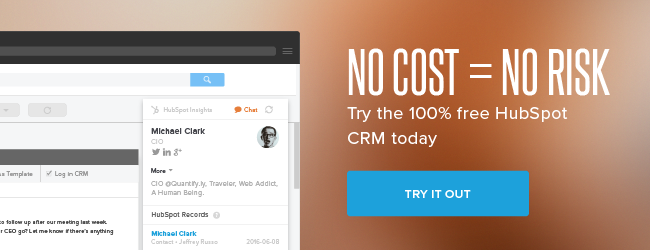

Have you ever left a networking event and thought, “I’m never doing that again”?
Networking is often stressful and time-consuming, so if you’re not seeing the results you want, you might be tempted to write it off completely.
But when someone isn't seeing value from networking, it's usually because they're doing something wrong. Before you give up, check out the seven reasons your efforts may be falling short.
1) You Don’t Have a Plan
If you expect great opportunities to come your way simply because you’re showing up to events, you’re bound to be disappointed.
Successful networking doesn’t happen without a clear strategy. You can't achieve anything unless you know what objectives you're working toward. Are you looking for referrals? Trying to meet potential prospects? Hunting for a new job? All of the above?
Once you know your goals, identify the people who can help. If you want referrals, for example, you’ll need to meet well-connected professionals in your industry. However, if you’re looking for job opportunities, you should hone in on recruiters and potential employers.
Identify which organizations, activities, conferences, and events your target contacts participate in and prioritize those opportunities. Put yourself in the right place at the right time, and it'll be easier to form the right connections.
2) You’re Not Volunteering
Helping out behind the scenes is a fantastic way to accelerate your networking efforts. Volunteers often get face time with the organization's leaders, which can lead to opportunities you would’ve never scored otherwise.
In addition, getting involved with networking events increases your visibility and brings you into contact with other like-minded people. You might even get access to useful information like attendee lists or upcoming speakers.
3) You’re Only Talking to Qualified Buyers
When you’re at an event and someone who doesn’t fit your “target contact” profile introduces herself, you should:
A) Say hi, then politely excuse yourself shortly afterwards. You don’t want to waste your time.
B) Continue chatting, but keep your eyes peeled for someone more important. You need to stay focused.
C) Focus on building rapport. You never know what a connection will lead to.
If you chose A) or B), it might be time to reevaluate your approach. Knowing who you want to meet is definitely necessary -- but if you ignore everyone who doesn’t immediately seem valuable to you, you’ll shoot yourself in the foot.
After all, you never know who will end up referring you to a colleague or landing a job with a major account. By avoiding anyone who’s not a good fit for your product or a potential employer, you’ll miss out on tons of great opportunities.
4) You’re Trying to Sell
Nothing turns people off faster than a sales pitch at a networking event. Most attendees are hoping to meet new contacts, build their personal brand, and learn more about the industry, not buy something. (Trade shows are the major exception.)
Unless you want to annoy everyone that crosses your path, don’t try to sell -- or even schedule meetings.
Instead, focus on having good conversations and providing value. Once you’ve won someone’s trust and respect, you can approach them about your product.
5) You’re Talking Too Much
Active listening is crucial when you’re talking to prospects: It helps you show genuine interest, learn more about them, and deepen your relationship.
The same principle applies when you’re networking. Listening and asking questions -- rather than talking someone’s ear off -- dramatically boosts your conversational partner's engagement with you. Not only will you build a better connection, you’ll also get the opportunity to gather key information.
Pay attention to any priorities, business challenges, and insights into their company they mention. Of course, you don’t want to run an interrogatation -- but if any details emerge naturally, make a mental note of them. Those details will be invaluable if you end up working with them down the road.
6) You’re Not Connecting With People On LinkedIn
Going to an event should be the first step in your networking strategy, not the last. Send LinkedIn connection requests to the people you meet as soon as possible -- you want your name and face to be fresh in their minds.
And don’t forget to personalize your requests. Chances are your request isn’t the only one sitting in their inbox, so make yours stand out by writing a short message. As a bonus, include the name of the event where you met and a tidbit or two from your conversation to jog their memory.
(Need help? Check out this LinkedIn request template.)
7) You’re Not Adding Value
If you identified any opportunities to help people -- even if they don't seem like potential buyers -- definitely follow through. Adding value without asking anything in return builds goodwill and can turn short interactions into long-lasting relationships.
Plus, thanks to the principle of reciprocity, doing a favor for someone else makes them more likely to do something for you.
Did you talk to someone who’d benefit from meeting another person in your network? Offer to make the intro. Did you discuss a challenge they’re facing? Send them a relevant resource. Do you have a suggestion for improving their business? Send along some advice.

![14 Elevator Pitch Examples to Inspire Your Own [+Templates]](https://blog.hubspot.com/hubfs/_category_page.png)





![How To Work A Room [Infographic]](https://blog.hubspot.com/hubfs/handshake_introduction.webp)
![The Ultimate Networking For Dummies Guide [SlideShare]](https://blog.hubspot.com/hubfs/networking.jpeg)

